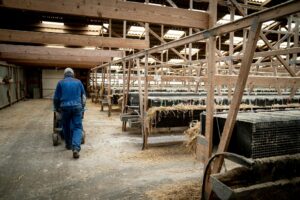Politico
BY SHAWN POGATCHNIK
Dublin’s efforts to suppress the spread of the coronavirus are spurring an early end to the trade.
 DUBLIN — Ireland is ordering the nation’s three mink farms to cull all of their 120,000 animals, signaling a likely end to Irish fur farming after years of debate and delay.
DUBLIN — Ireland is ordering the nation’s three mink farms to cull all of their 120,000 animals, signaling a likely end to Irish fur farming after years of debate and delay.
Mink farming became an industry in Ireland in the 1960s but has declined over the past decade in line with wider European steps to regulate, restrict and ultimately ban the practice in many EU member countries.
In 2019, the previous Irish government pledged to deliver a bill banning fur farming. This would have outlawed the continued operation of mink farms in the midlands county of Laois, in Kerry in the southwest, and Donegal in the northwest. That bill was never passed.
Instead, Ireland’s efforts to suppress the spread of the coronavirus is spurring an early end to the fur trade.
While Irish tests at all three farms this month found no cases of the mutated virus detected in Danish mink farms, Chief Medical Officer Tony Holohan recommended earlier this week that Ireland should euthanize its farmed mink population as a precaution.
The Department of Agriculture confirmed Thursday it had written to all three farms instructing them to stop breeding with immediate effect. It said all farms would be permitted to “harvest” fur from the animals when they are culled in coming weeks.
The department said in a statement it was acting on expert advice that minks “should be culled to minimise or eliminate this risk.”
The Irish mink farms — some of which received government grants as recently as 2017 to support rural employment — earn €25 to €80 per pelt. It takes about 20 such pelts to make a fur coat.
In a joint statement, owners of the mink farms said the government decision “has left three families in rural Ireland devastated and without a livelihood.”
In 2019, the Irish Animal Liberation Front claimed to have breached security at the largest mink farm in Laois and “liberated” about 300 animals, but the owners said no minks escaped.

